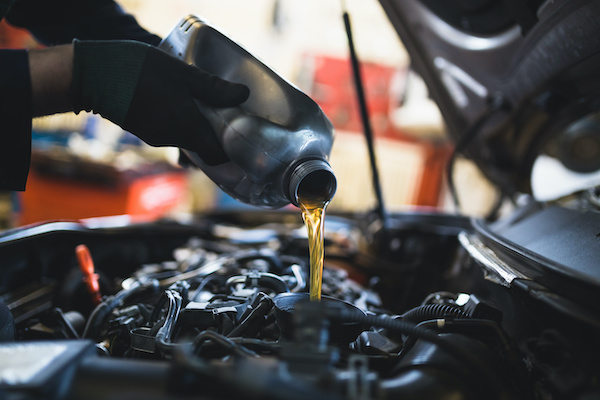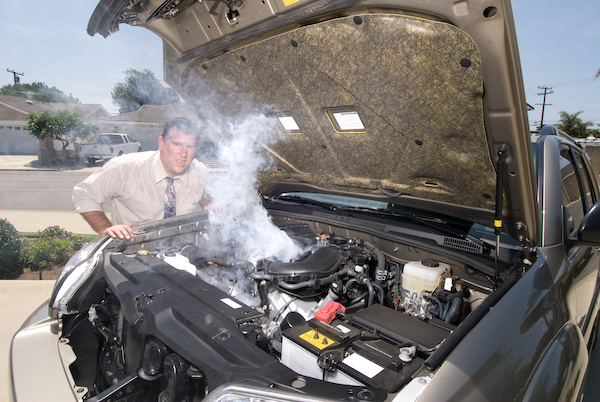Posted on 4/23/2021
.jpeg)
The anti-lock braking system or ABS is a safety mechanism that prevents a car's brakes from locking up and stops the car from skidding when the brake pedal is pressed. If the ABS light remains on when the car has been started it may mean that the ABS system is deactivated due to a possible malfunction. It is not safe to drive when the ABS light is on because it means the vehicle would not operate the way it is supposed to when you brake suddenly. The car could skid across the road in an emergency situation and cause a serious accident. The four most common scenarios where the ABS light may go on is when the ABS module malfunctions if there are low levels in the fluid reservoir, broken wheel speed sensors, or the system has deliberately been turned off. The ABS, an anti-lock braking system, shares some very important components with the traction control system in the vehicle and it is imperative that when the ABS light comes on you should pull your car off the road into a safe p ... read more
Posted on 3/17/2021
.jpeg)
What is a timing chain? A timing chain, or in some motors a timing belt, is responsible for coordinating the opening and closing of valves within the internal combustion engine. This coordination is achieved by synchronizing the camshaft and crankshaft to open and close the valves while simultaneously preventing the pistons from hitting these valves. The timing chain consists of multiple links that run smoothly over gears, but with such a dynamic role in the motor, the timing chain is susceptible to wear and tear and may cause problems. Luckily, there are a few tell-tale symptoms to look out for. What are the symptoms of a bad timing chain? The engine misfires. Once a timing chain is stretched and has lost its integrity, the chain may skip a gear and lose the necessary coordination leading to an engine misfire. Repeated misfires could indicate a timing chain issue and should be investigated. There is a rattling sound. A lax timing chain, or worse, a broken timing chain wi ... read more
Posted on 2/18/2021
.jpeg)
If your new brakes are producing a squeaking sound then you would be quite worried about it! It's not ideal to put yourself in danger so it's better to visit a professional auto mechanic. Let's find out what are the possible causes behind the squeaking sound of the new brakes. Why The New Brakes of Your Car Are Squeaking? It's surely bothersome when you just got the new brakes, but again there is an issue. The following causes are possible: When you press down on the brake pedal, the pads and rotors are the two parts that touch. It's possible that there could be moisture on these two parts due to rain or snow and hence contributing to the squeaking noise. But, it would go away when you would start driving your vehicle. You might have got brake pads of cheap quality and that's causing the squeaking noise that you don't like! It's important to visit a reliable service provider. It's possible that the metal fibers on the pads would be causing ... read more
Posted on 1/21/2021

How frequently your vehicle needs an oil change depends on several factors. The tried-and-true guideline about changing oil every 3 months or 3,000 miles is no longer viable. Depending on the vehicle and type of oil, some vehicles may not need an oil change until 10,000 miles or every 7-9 months. So, how does the average consumer know when to change their vehicle oil? There are several helpful guidelines available. Start with the Manufacturer Recommendations: What does the owner's manual say? Read and follow the manufacturer's guidelines about what type of oil to use and when to change it. Often, the manufacturer will recommend changing the oil filter at the same time. How do you drive? Owner's manuals often separate regular and extreme driving. Extreme driving may include items like towing, racing, and off-road driving. Stop and go driving or quick trips in a city also fall under these guidelines. These driving conditions require more ... read more
Posted on 12/16/2020

You might notice a small amount of smoke escaping from your tailpipe as you start up your car one morning and start to worry. There's no need. This kind of smoke is normal. It's just water vapor from condensation that has gathered in the exhaust system overnight. But a cloud of smoke billowing from underneath your car's hood as you drive? That's the kind of smoke with cause for concern. Different colors and smells of smoke can help indicate the cause, though it's best to err on the side of caution and take your vehicle to a mechanic if you're concerned. What Do the Different Colors of Smoke Mean? White Smoke: This is usually a signal that coolant is being sprayed onto a hot engine by a blown radiator hose. It's usually accompanied by a strong, sweet smell from the coolant. Black Smoke (with a burning plastic smell): A burning plastic smell accompanying black smoke usually indicates an electrical failure. The sm ... read more